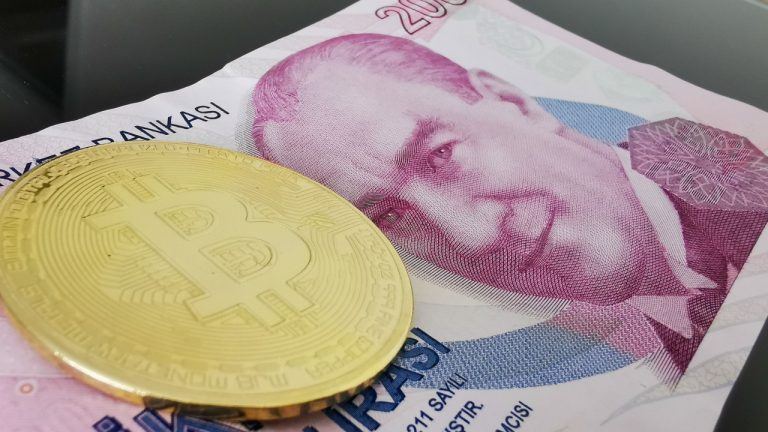
Ozgur Guneri spent seven years as the head of the popular Turkish crypto exchange. He will remain with the company as a director.
Ozgur Guneri, the CEO of Turkish cryptocurrency exchange BtcTurk, announced he is stepping down after leading the company’s business operations for seven years.
According to Bloomberg, the change in management comes amid BtcTurk’s planned expansion to Africa, the Asia-Pacific region, and Latin America in a bid to become a global crypto exchange.
BtcTurk founder Kerem Tibuk will take over as CEO, while Guneri will remain with the company and serve on the board of directors.
 Crypto industry leader, Tether Operations Limited, and technology and strategy company, BTguru, have entered into a Memorandum of Understanding (MoU) to assess digital assets educational initiatives in Turkey (Türkiye). The MoU aims to develop comprehensive programs introducing stakeholders to blockchain and peer-to-peer technology, and explore real-world asset tokenization use cases for banks. This collaboration could […]
Crypto industry leader, Tether Operations Limited, and technology and strategy company, BTguru, have entered into a Memorandum of Understanding (MoU) to assess digital assets educational initiatives in Turkey (Türkiye). The MoU aims to develop comprehensive programs introducing stakeholders to blockchain and peer-to-peer technology, and explore real-world asset tokenization use cases for banks. This collaboration could […]

Terraform Labs plans to sell key projects within the Terra ecosystem and give the community control of the Terra blockchain.
Terraform Labs has agreed to pay the United States Securities and Exchange Commission (SEC) roughly $4.47 billion as part of its settlement with the securities regulator. The duo settled after a jury found Terraform Labs and its co-founder liable for the Terra ecosystem collapse, which erased $40 billion in investor assets.
Chris Amani, CEO of Terraform Labs, has announced that the firm will cease operations following the settlement. The company plans to sell key projects within the Terra ecosystem and give the community control of the Terra blockchain.
In other news, lawyers for blockchain payments company Ripple have asked a court to consider an “appropriate” civil penalty in its case with the SEC following a settlement between the regulator and Terraform Labs. The SEC has requested that Ripple pay roughly $2 billion in disgorgement, prejudgement interest and civil penalties. Ripple has argued it should pay no more than a $10 million penalty.
 In a significant move towards embracing digital assets, Turkish bank Garanti BBVA has launched a crypto wallet and trading platform, “Garanti BBVA Crypto”. This platform allows customers to trade and store BTC, ETH, and USD Coin (USDC) seamlessly via the bank’s mobile app. The bank is also set to introduce the Bonus Platinum Biometric Card […]
In a significant move towards embracing digital assets, Turkish bank Garanti BBVA has launched a crypto wallet and trading platform, “Garanti BBVA Crypto”. This platform allows customers to trade and store BTC, ETH, and USD Coin (USDC) seamlessly via the bank’s mobile app. The bank is also set to introduce the Bonus Platinum Biometric Card […]
The eighth-largest economy in continental Europe is reportedly proposing a new tax on crypto transactions. According to a new report by Bloomberg, Turkey is seeking to raise taxes as a means of recovering its budget after it was ravaged by earthquakes in 2023. The plan would haul in an estimated $7 billion for the Turkish […]
The post Europe’s Eighth-Largest Economy Proposes New Tax on Crypto Transactions: Report appeared first on The Daily Hodl.
 Turkish Treasury and Finance Minister Mehmet Simsek has stated that there are no current plans to impose taxes on profits from cryptocurrencies. However, he mentioned that the government is considering implementing a “very limited” transaction tax on these assets, though the specifics have not been determined. This statement was made to clarify earlier reports by […]
Turkish Treasury and Finance Minister Mehmet Simsek has stated that there are no current plans to impose taxes on profits from cryptocurrencies. However, he mentioned that the government is considering implementing a “very limited” transaction tax on these assets, though the specifics have not been determined. This statement was made to clarify earlier reports by […] The Turkish parliament’s Planning and Budget Committee will discuss a draft law this week that would require crypto asset service providers to obtain licenses and register. This move aims to enhance Turkey’s compliance with the Financial Action Task Force (FATF) standards. In 2021, FATF placed Turkey on its “grey list” due to inadequate oversight of […]
The Turkish parliament’s Planning and Budget Committee will discuss a draft law this week that would require crypto asset service providers to obtain licenses and register. This move aims to enhance Turkey’s compliance with the Financial Action Task Force (FATF) standards. In 2021, FATF placed Turkey on its “grey list” due to inadequate oversight of […] Turkey is preparing to present a new law to regulate crypto assets to Parliament. The legislation, aimed at aligning with international standards and reducing risks associated with crypto transactions, will enforce strict regulations on the licensing and operation of cryptocurrency trading platforms by the Capital Markets Board. It will also ensure the safe custody of […]
Turkey is preparing to present a new law to regulate crypto assets to Parliament. The legislation, aimed at aligning with international standards and reducing risks associated with crypto transactions, will enforce strict regulations on the licensing and operation of cryptocurrency trading platforms by the Capital Markets Board. It will also ensure the safe custody of […]

Stablecoin purchases in Turkey amount to 4.3% of GDP, the highest among global economies, according to Chainalysis.
The United States may lead the world in stablecoin transaction volumes, but its share of stablecoin purchases relative to its gross domestic product (GDP) has been eclipsed by Turkey.
According to “The 2024 Crypto Spring Report,” released on April 25 by the blockchain intelligence firm Chainalysis, Turkey has the highest share of stablecoin purchases relative to its GDP.
Based on Chainalysis’ data, stablecoin buying in Turkey accounted for 4.3% of its GDP between April 2023 and March 2024, making it the world’s biggest spender of stablecoins relative to its GDP.
 According to February 2024’s latest inflation data, Turkey faces an inflation rate exceeding 67%, amid ongoing currency devaluation and a declining lira against the U.S. dollar. Recent findings suggest that in an effort to safeguard their wealth, Turks are increasingly turning to gold, with smuggling hitting unprecedented levels. Additionally, there is a growing interest among […]
According to February 2024’s latest inflation data, Turkey faces an inflation rate exceeding 67%, amid ongoing currency devaluation and a declining lira against the U.S. dollar. Recent findings suggest that in an effort to safeguard their wealth, Turks are increasingly turning to gold, with smuggling hitting unprecedented levels. Additionally, there is a growing interest among […]